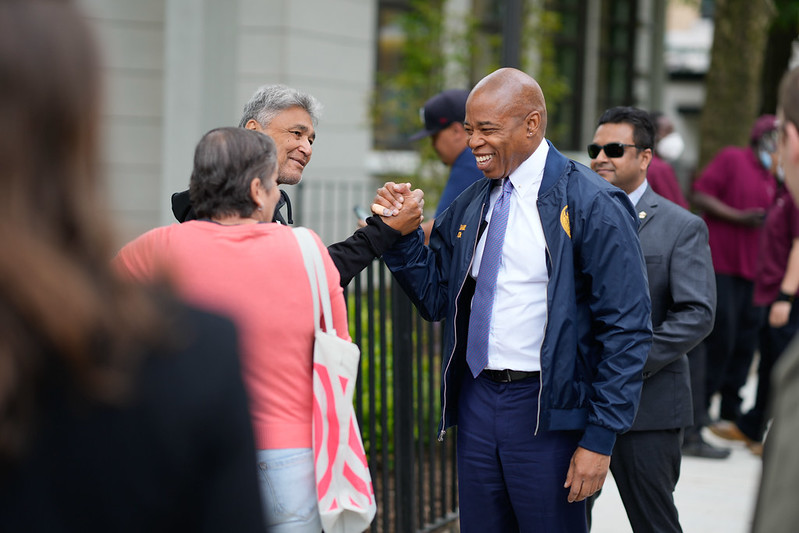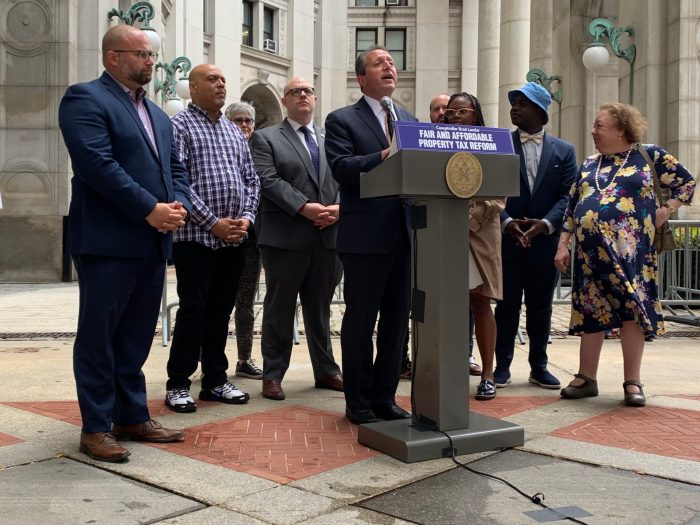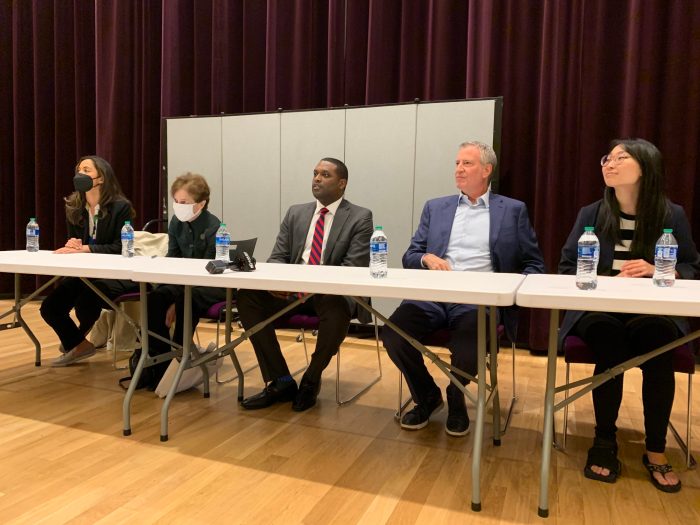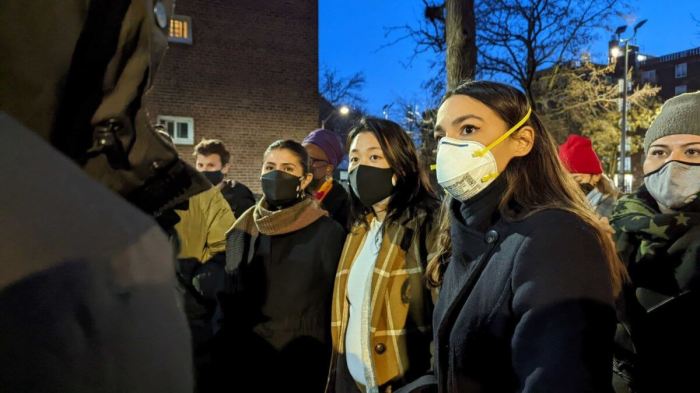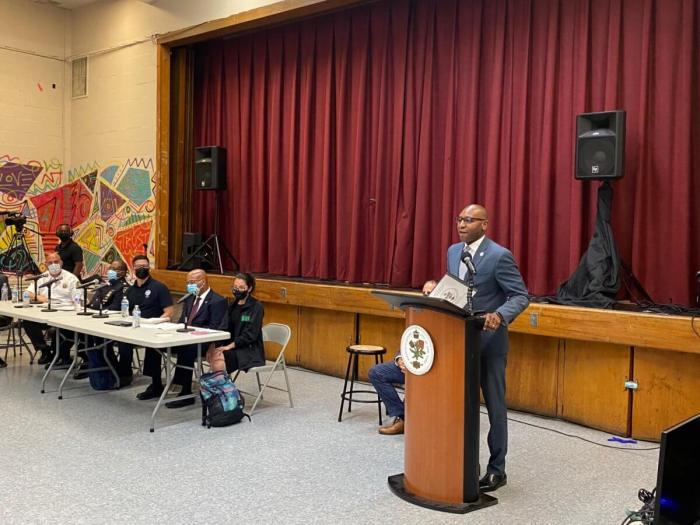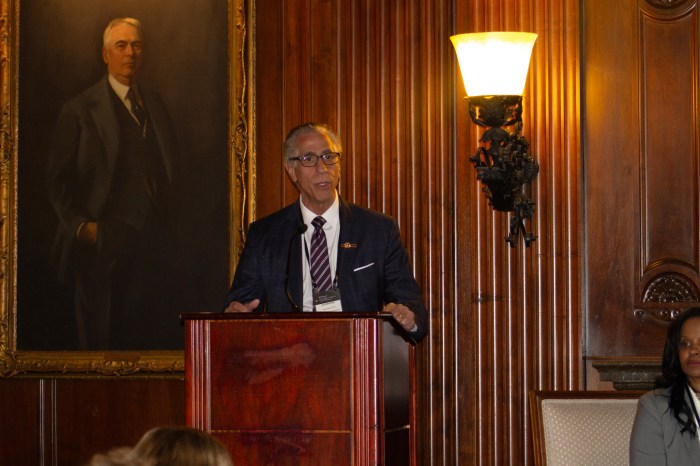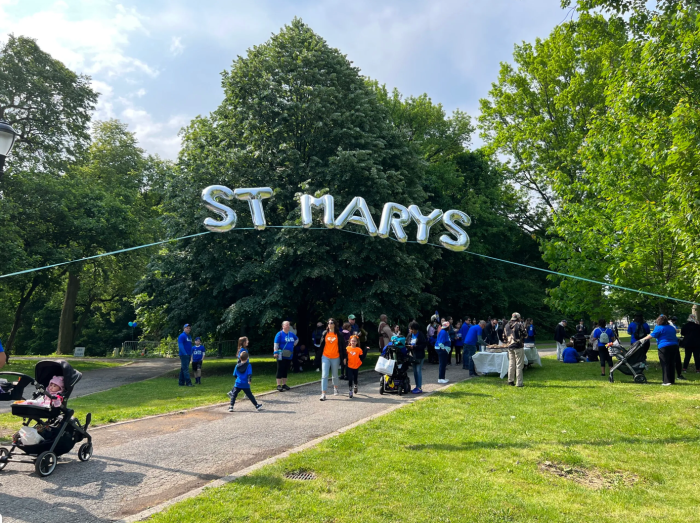Less than two weeks before the end of the state legislative session, Mayor Eric Adams rallied with public housing residents at the Polo Grounds Towers Monday to demand Albany lawmakers pass a bill establishing the New York City Housing Authority Preservation Trust.
The bill – S6999A in the State Senate and A7805 in the Assembly – would set up a new city agency, which proponents say would allow the New York City Housing Authority (NYCHA) to access higher levels of federal funding to making much needed repairs to the 25,000 NYCHA apartments across the five boroughs. State Senator Brian Kavanagh (D – Manhattan, Brooklyn) and Assembly Member Steven Cymbrowitz (D – Brooklyn), each the chair of their respective chamber’s housing committee, are sponsors of the measure.
The trust also aims to put tenants at the center of the decision making process and preserve their rights and protections.
Adams said this bill is sorely needed because the federal government can’t be relied upon to provide the over $40 billion necessary to fully rehabilitate NYCHA buildings citywide anytime soon, especially considering the Build Back Better bill seems unlikely to pass the U.S. Senate.
“One thing that’s clear, we need to stop playing with this,” Adams said. “We’re not getting money from the federal government this year. They’re not. They already told us, ‘we are not concerned with NYCHA residents.’ They did not pass that $35 billion that we needed. So, we must do it on our own. Here’s a way to do it – the trust. Let’s get the trust passed. And I want to thank our colleagues in Albany. They’re those in Albany who support this, they believe this is the right thing to do. Now, let’s get it over the finish line, so we can finally stop the years of neglect with NYCHA. And [stop] kicking the can down the road.”
Joining Adams at the Harlem public housing complex were the city’s Chief Housing Officer Jessica Katz, Comptroller Brad Lander, Nostrand Houses Residents Association President Barbara McFadden and many others.
In response to a reporter’s question about whether he thinks the bill can get through with less than two weeks left in session, Adams said as a former state Senator, he knows “the last week is when stuff gets done up there.” He added that although his strategy to get items passed in Albany has been criticized, he’s already delivered wins for the city on items like the earned income tax credit, child care funding and rollbacks to criminal justice reforms.
“We had a successful record in Albany, yet people said we didn’t have the right strategy,” Adams said. “I always thought good strategies mean that you get wins, I got wins.”
On the NYCHA trust legislation, Katz said it’ll allow for crucial repairs to be made to the public housing system that’s seen divestment from the federal government for decades while continuing to protect tenants.
“Albany has the opportunity to deliver the biggest windfall to NYCHA residents, since it was created 85 years ago,” Katz said. “The trust will bring the money, the repairs and the rights that every New Yorker’s home should have. And even more, this legislation guarantees that these apartments will remain permanently affordable for future generations.”
The legislation would allow NYCHA to apply for federal Tenant Protection Vouchers (TPV) – project based funding the housing authority currently isn’t able to access, according to a release. It would also give NYCHA new procurement rules that will lower the costs of making repairs and speed up construction. It would ensure NYCHA continues to own and operate all of its properties, as well as the land they’re built on.
Lander said the city can’t wait any longer to rehabilitate NYCHA properties across the city, because many of the buildings are reaching a point where they’ll structures will no longer be salvageable.
“The buildings themselves are beginning to be in jeopardy,” Lander said. “So, it’s not only that we’re leaving people in appalling conditions, it’s that if we don’t fix the roofs, and fix the systems and modernize the buildings, there will come a time and it will not be that long from now, when the buildings themselves simply cannot be saved and renovated. And if we get past that point, we will be in an impossible situation with half a million of our fellow New Yorkers. We can’t wait any longer.”
Additionally, the bill preserves current NYCHA residents rights and protections. These include requiring tenants to pay no more than 30 percent of their income on rent, succession rights and city and local residents associations.
It also aims to empower NYCHA tenants by allowing residents to opt into the trust in the first place, vote on proposed changes to their buildings and participate in selecting vendors to make the repairs. Plus, four residents would get to sit on the trust’s nine member appointed board.
Lander said it was the recent addition of these provisions that give residents more power in the decision making process that won his support for the legislation.
“The most significant set of changes that have been made to this legislation are to say ‘resident voices, first and foremost, developments will only go into the trust, if their residents choose it,’” Lander said. “And that is a profound and important step that really strengthened the preservation trust. It’s what took me across the finish line from somebody who was supportive, but not coming out there and saying, ‘let’s get it done.’ To someone who’s saying ‘we must do it right now. The legislation needs to pass in Albany.’”


